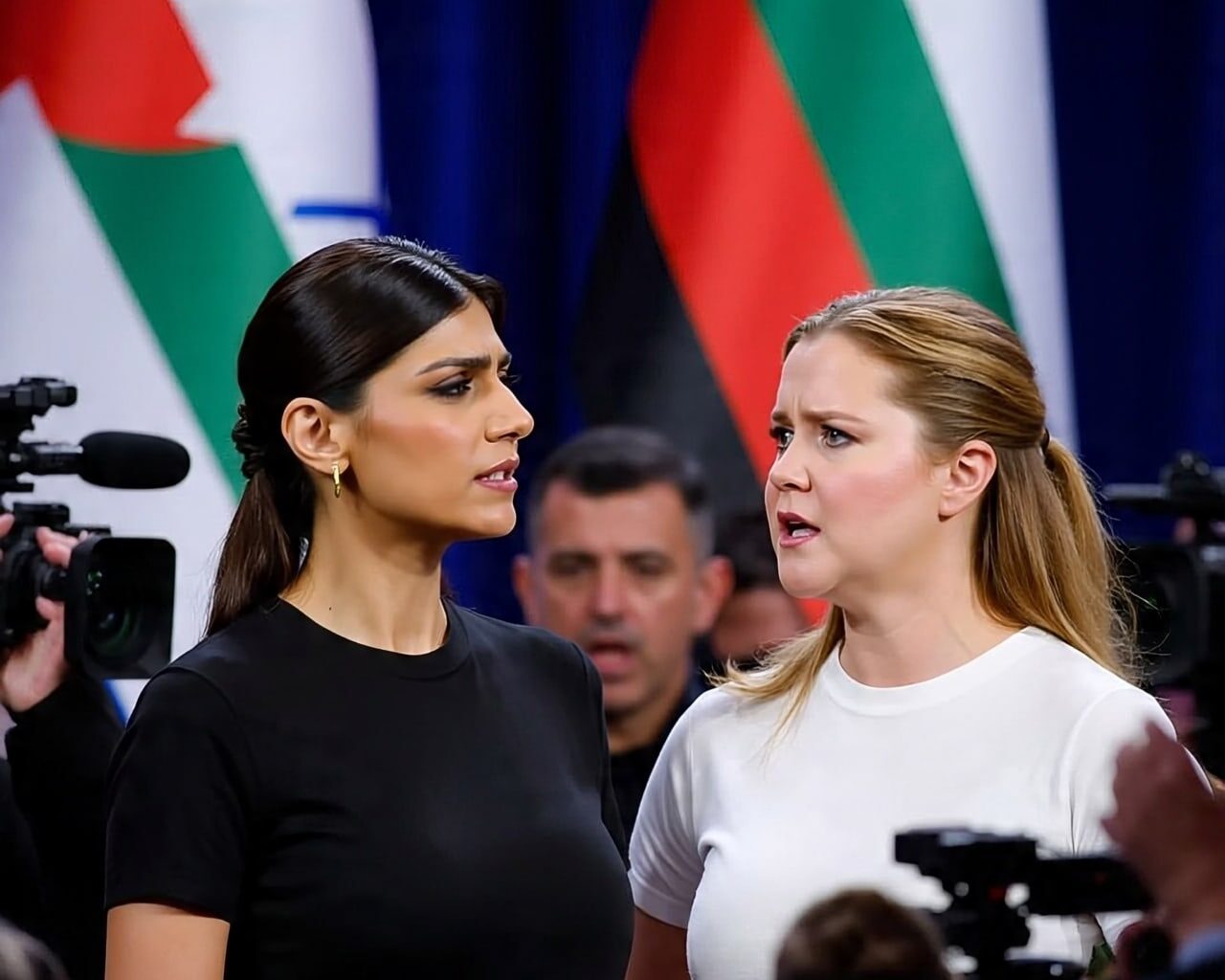In late 2023, a storm broke out in celebrity-social-media circles when Mia Khalifa reposted a direct-message confrontation involving Amy Schumer, turning what might have been a private spat into a public flashpoint amid the 2023 Israel–Hamas war. The exchange underscored how high-profile figures can become lightning rods in globally sensitive conflicts—and how private conversations can illuminate wider divisions.
Khalifa, the Lebanese-American media personality whose earlier career in adult entertainment drew wide controversy, has in recent years positioned herself as a vocal supporter of the Palestinian cause. She has called Israel an “apartheid state” and referred to certain Palestinians as “freedom fighters.” Wikipedia+1 Meanwhile, Schumer, a comedian and actor raised Jewish, has publicly aligned with Israel’s right to defend itself and has faced backlash for comments and imagery relating to Gaza and its civilians. Newsweek+1
The Trigger
The conflict erupted publicly when Khalifa reposted screenshots of Schumer’s Instagram DMs with actress Asia Jackson. Jackson had criticized Schumer for a cartoon she posted — reportedly depicting a sign reading “Gazans rape Jewish girls only in self defense” — which then spurred Schumer to message Jackson: “Did something I post about my people being massacred upset you?” Jackson replied: “The Islamophobia and generalization of Gazan people did.” The Independent+1 Schumer then wrote: “You are not educated about the history of the Jewish people and of the conflict … I’d like to express that I think you are antisemitic.” The Hollywood Gossip+1
Khalifa’s reposting brought her into the fray—not as a direct participant in that DM exchange, but as a curator of it. She amplified the messages and tied them to her own advocacy, posting content supportive of Palestinians and highlighting stories of Palestinian suffering. The Times of India
The Stakes Become Public
What might have remained a behind-the-scenes exchange exploded because both women—and their divergent stances—symbolised opposing camps in a major global conflict. For Schumer, the DMs reinforced accusations by some pro-Palestinian activists that she was failing to contextualise Israel’s actions or was insensitive to Palestinian suffering. Newsweek For Khalifa, reposting the exchange allowed her to highlight what she sees as double-standards: celebrities who support Israel get pass; critics of Israeli policy become “cancelled.”
In the fallout, Schumer faced calls for a boycott of her upcoming film projects, with critics pointing to her earlier posts and DMs. The New Arab Meanwhile, Khalifa’s previous business ties—most notably a podcast deal with Playboy—ended after her comments supporting Hamas and denouncing Israel. Wikipedia+1
What It Reveals
The complexity of celebrity advocacy. Both women show how public figures engage with global conflict—intentionally or not—and how their platforms can amplify mis-steps. Schumer’s attempt at satire, for example, was deemed by many as crossing into offensive generalisation. The Independent+1
Context and nuance matter. Critics say Schumer’s posts lacked important context about the 75-year history of the Israeli-Palestinian conflict and the lived experience of Gazans. Newsweek On the other side, Khalifa’s unabashed rhetoric—celebrating “freedom fighters”—raised concerns about glorifying violence or extremist factions. Wikipedia
The private becomes public. A single screenshot or DM can break out into full-blown controversy. The leak of Schumer’s messages went viral and Khalifa’s amplification turned it into a broader narrative of “celebrity complicity vs activism.”
Broader social media consequences. The exchange illustrates how the Israel-Palestine war is not confined to battlefields but plays out in feeds, tweets, and comment-threads—where fandoms, backlash and polarisation collide.
Looking Ahead
This episode raises questions about how celebrities should engage—or refrain from engaging—in geopolitics. Can public figures responsibly use their platform for humanitarian advocacy without oversimplifying? Can they sustain consistent messaging under intense scrutiny? Schumer later clarified her viewpoint: while supporting Jewish people and Israel’s safety, she said she did not fully endorse the leadership of Israel’s Prime Minister Benjamin Netanyahu. Yahoo News
For Khalifa, the exchange affirmed her role as a polarising figure—both advocate and provocateur. Her decision to repost the engagement placed her firmly in the realm of political influencer, not just media personality.
Conclusion
The confrontation between Mia Khalifa and Amy Schumer may have begun as a screenshot and a shared post, but it transformed into something far bigger: a reflection of how deeply global conflicts now intersect with celebrity culture, social media narratives and identity-politics. It offers a cautionary tale about the power—and peril—of public voices in the digital age. While the war in the Middle East rages on in its traditional theatres, the battle for narrative, legitimacy and memory rages just as fiercely online.
